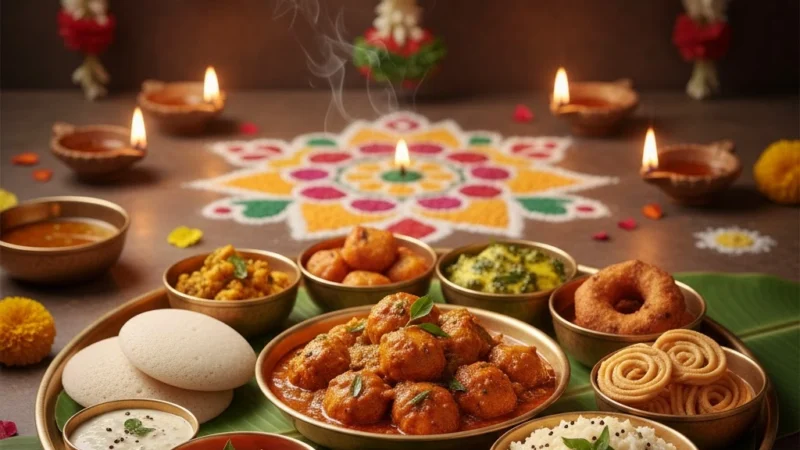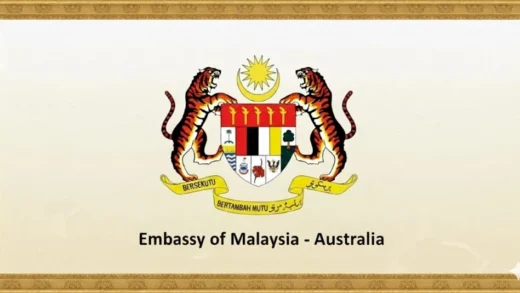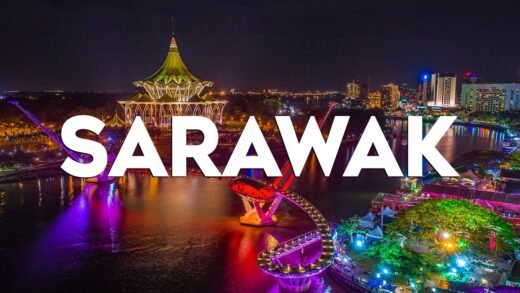Must-Try Vegetarian Dishes During Deepavali in Malaysia

Introduction: Deepavali in Malaysia
Deepavali, also known as Diwali, is one of the most celebrated festivals among the Malaysian Indian community. Marking the triumph of light over darkness and good over evil, the festival has become a major cultural and religious event in Malaysia.
Over the years, Malaysian Indian festival celebrations have evolved to blend traditional customs with local influences, making Deepavali a vibrant celebration filled with lights, decorations, prayers, and sumptuous vegetarian cuisine. This article explores Deepavali traditions in Malaysia, regional practices, and must-try vegetarian dishes that define the festival.
The Origins and Evolution of Deepavali in Malaysia
The Indian community in Malaysia brought Deepavali customs from South India during the 19th and early 20th centuries. Over time, these traditions merged with local Malaysian culture, creating a unique celebration. Today, Deepavali in Malaysia is observed with both religious rituals and public festivities, emphasizing family, community, and culinary traditions.
Prominent temples such as Batu Caves in Kuala Lumpur and Sri Mahamariamman Temple play a central role in celebrations, hosting prayers, processions, and cultural programs. Families visit these temples to offer prayers, light diyas, and receive blessings, while homes are adorned with colorful rangoli and oil lamps, symbolizing prosperity and happiness.
Deepavali Traditions in Malaysia
Lighting and Decorations
A key part of Malaysian Deepavali celebrations is lighting homes with diyas and creating intricate rangoli designs at entrances. In cities like Penang and Johor, communities often compete to showcase the most creative decorations, adding to the festival’s festive charm.
Regional Differences
- Penang: Famous for street festivals and open houses where people of all communities share food and sweets.
- Kuala Lumpur: Temples like Batu Caves host grand processions, cultural shows, and special prayers.
- Johor: Communities organize traditional dances and music alongside temple rituals.
- Ipoh: Focused more on family-centered celebrations, with home-cooked vegetarian meals and small temple visits.
Family Practices
Preparation begins days in advance with home cleaning, shopping, and cooking. Families exchange sweets, offer prayers, and gather for communal meals, strengthening family and community bonds.
Must-Try Vegetarian Dishes During Deepavali
1. Samosas (Vegetable or Lentil-Filled)
These deep-fried pastries filled with spiced vegetables or lentils are a popular snack at Deepavali open houses across Malaysia.
2. Murukku
A crunchy, spiral-shaped snack made from rice flour and lentils, murukku is a festive favorite enjoyed by both kids and adults.
3. Vadai
Deep-fried lentil fritters often shaped like donuts, vadai is commonly served as prasad in temples such as Sri Mahamariamman.
4. Pongal
A comforting rice and lentil dish seasoned with black pepper, cumin, and ghee, pongal is a traditional breakfast during Deepavali rituals.
5. Vegetable Kurma
A rich coconut-based curry with mixed vegetables, kurma pairs perfectly with puris and is a signature Deepavali dish in Malaysian homes.
6. Sweet Treats: Laddu and Mysore Pak
Laddu, made from chickpea flour and sugar, and Mysore Pak, a buttery South Indian sweet, are essential for festive celebrations and gift exchanges.
7. Payasam / Kheer
A sweet pudding made from milk, rice, and jaggery, payasam is often prepared as an offering in temples and enjoyed during family gatherings.
Where to Celebrate Deepavali in Malaysia
- Batu Caves, Kuala Lumpur: Witness grand lighting ceremonies, cultural performances, and temple prayers.
- Sri Mahamariamman Temple, KL: Historic temple hosting elaborate rituals and vegetarian offerings.
- Little India, Penang: Vibrant street festivals with food stalls, decorations, and community celebrations.
- Johor Bahru: Local temples and open houses showcase family-oriented Malaysian Deepavali traditions.
Conclusion
Deepavali in Malaysia is a celebration of light, community, and culinary heritage. From decorating homes with diyas and rangoli to preparing traditional vegetarian dishes, the festival fosters togetherness and cultural pride. Exploring Malaysian Deepavali history and culture, visiting temples, and tasting iconic vegetarian dishes allow locals and visitors alike to experience the rich traditions of this beloved festival.





Comments are closed.